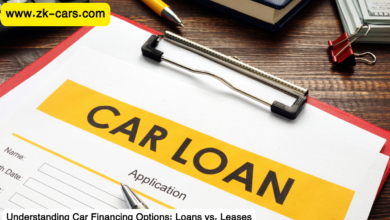new-vs-used-cars-which-is-right-for-you

Deciding between a new and a used car is one of the most significant choices a buyer will make when entering the automobile market. Both options come with their own sets of advantages and disadvantages, and the decision will depend on various factors including budget, lifestyle, and personal preferences.
In this article, we’ll explore the key differences between new and used cars to help you make an informed choice.
1. Understanding Your Needs
Before delving into the specifics of new versus used cars, it’s crucial to understand your own needs. This can significantly impact your decision-making process.
A. Lifestyle Considerations
- Daily Commute: How far do you drive each day? If you have a long commute, fuel efficiency and reliability are key.
- Family Size: Do you need extra seating or cargo space? Larger families may benefit from the space and safety features of newer models.
- Driving Conditions: Consider where you’ll primarily drive. If you frequently navigate through rough terrains, a newer model with advanced all-wheel drive may be necessary.
B. Financial Situation
Your budget will play a pivotal role in your decision:
- Initial Cost: New cars typically have higher price tags, but they come with the latest technology and warranties.
- Long-term Costs: Used cars often come with lower insurance rates and depreciation rates but may require more maintenance over time.
2. Advantages of Buying a New Car
A. Latest Technology and Features
One of the most significant advantages of buying a new car is the access to the latest technology. New cars often come equipped with:
- Advanced Safety Features: Features such as adaptive cruise control, lane-keeping assist, and automatic emergency braking.
- Infotainment Systems: New models offer the latest in connectivity options, such as Apple CarPlay and Android Auto.
- Fuel Efficiency: New cars tend to have better fuel efficiency due to advancements in technology.
B. Warranty and Reliability
New cars come with manufacturer warranties that cover repairs for a certain period or mileage, providing peace of mind to buyers.
- Reduced Repair Costs: With a warranty, you can avoid the unexpected costs that often accompany used car ownership.
- Reliability: New cars are less likely to break down, allowing you to avoid the hassles associated with older vehicles.
C. Customization Options
Buying new often gives you the chance to customize your vehicle to your exact specifications, from color to added features.
3. Advantages of Buying a Used Car
A. Lower Purchase Price
Used cars are generally more affordable than new ones. Here are some benefits of buying used:
- Lower Depreciation: New cars can lose up to 20% of their value as soon as they leave the dealership. In contrast, used cars have already gone through this initial depreciation.
- More Car for Your Money: You can often find a higher-end model or additional features in a used car that would be outside your budget if buying new.
B. Lower Insurance Costs
Insurance premiums tend to be lower for used cars, as the value of the car determines the insurance costs.
- Affordability: This can free up more of your budget for other expenses, such as fuel or maintenance.
C. Variety of Choices
The used car market offers a wide range of options, from older models to nearly new cars. This variety can provide:
- Unique Finds: You might find a model that’s no longer in production but suits your style and needs perfectly.
- Different Price Ranges: With more choices, you can find a vehicle that fits your budget more comfortably.
4. Considerations Before Making a Decision
A. Financing Options
Whether you choose to buy new or used, financing options will vary:
- New Cars: Dealerships often offer attractive financing deals, including low-interest rates or cashback incentives.
- Used Cars: While financing for used cars can also be affordable, interest rates may be higher than those for new cars. It’s important to shop around and compare offers.
B. Maintenance Costs
Older cars may require more maintenance and repairs, which can add up over time. Key considerations include:
- Model Reliability: Research the specific used car models you’re considering for their long-term reliability.
- Service History: When buying a used car, always check the service history to understand any previous issues or repairs.
5. The Test Drive and Inspection
A. New Car Test Drive
When you’re considering a new car, the test drive is an essential step:
- Experience the Features: Take your time to assess all the features and comfort.
- Check Handling and Comfort: Ensure the vehicle suits your driving style and comfort preferences.
B. Used Car Inspection
For used cars, a thorough inspection is crucial:
- Pre-Purchase Inspection: It’s wise to have a trusted mechanic inspect the vehicle before purchasing.
- Check for Red Flags: Look for signs of wear and tear, rust, or any issues with the engine or transmission.
6. Conclusion
Choosing between a new and a used car ultimately depends on your individual needs and circumstances. New cars offer the latest technology, reliability, and customization options but come with a higher price tag and rapid depreciation. Used cars, on the other hand, provide greater affordability and lower depreciation, but they may require more maintenance and carry risks regarding reliability.
By understanding your own needs, assessing your financial situation, and utilizing the tools and resources available, you can make an informed decision that best suits your lifestyle and budget.
Common Questions
1. What are the main benefits of buying a new car?
New cars offer the latest technology, advanced safety features, warranties, and the option for customization.
2. Are used cars a better value for money?
Yes, used cars typically cost less upfront, experience lower depreciation, and often come with lower insurance costs.
3. How can I find a reliable used car?
Research the specific model’s reliability ratings, check its service history, and have a trusted mechanic perform a pre-purchase inspection.
4. What should I consider when financing a new or used car?
Compare financing options, including interest rates, loan terms, and dealership incentives to find the best deal for your situation.
5. Is it worth paying more for a certified pre-owned vehicle?
Certified pre-owned vehicles often come with warranties and have undergone thorough inspections, providing peace of mind that can justify the higher price.




